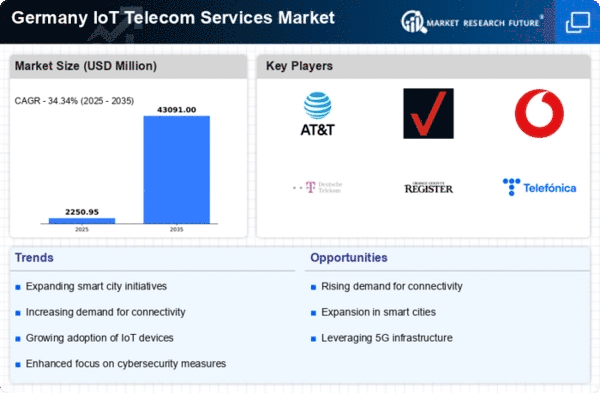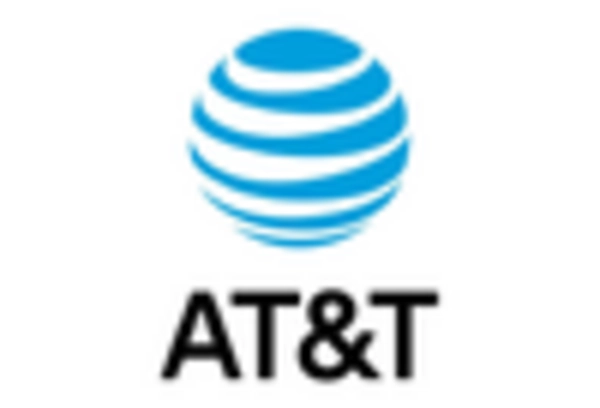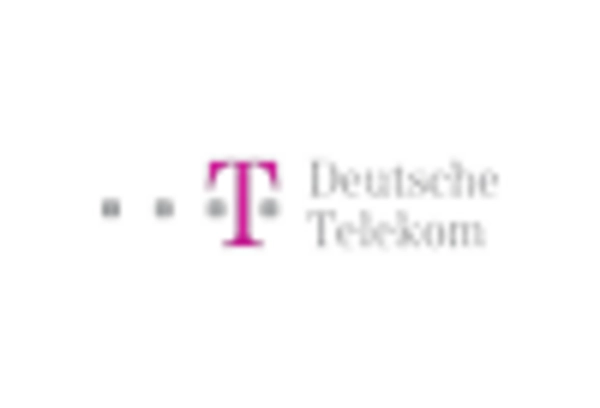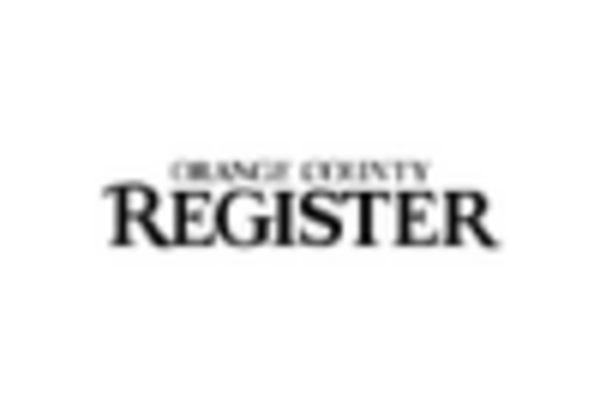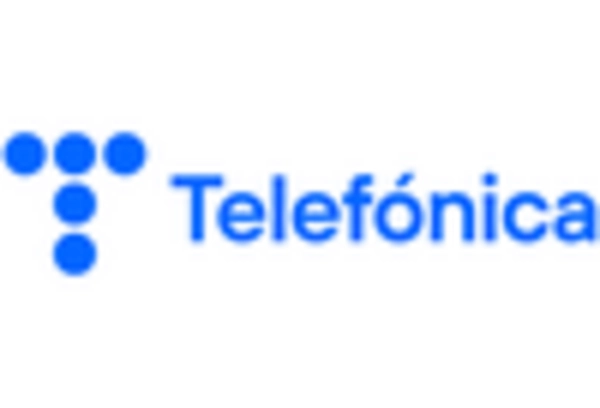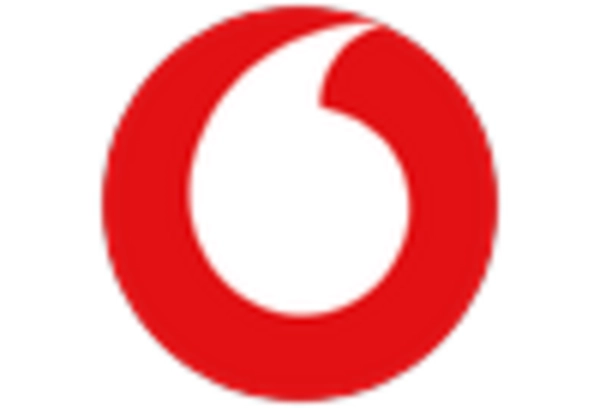Rising Demand for Automation
The increasing demand for automation across various industries in Germany is a significant driver for the iot telecom-services market. Industries such as manufacturing, logistics, and agriculture are increasingly adopting IoT solutions to enhance operational efficiency and reduce costs. In 2025, it is projected that the automation market in Germany will grow by 25%, with IoT technologies playing a central role in this transformation. The integration of IoT devices allows for real-time monitoring and control, which can lead to improved productivity and reduced downtime. Consequently, this trend is expected to bolster the growth of the iot telecom-services market as businesses seek to leverage IoT for competitive advantage.
Advancements in Data Analytics
Advancements in data analytics technologies are significantly impacting the iot telecom-services market in Germany. The ability to collect, analyze, and derive insights from vast amounts of data generated by IoT devices is becoming increasingly important for businesses. In 2025, the market for IoT data analytics is projected to grow by 40%, driven by the need for actionable insights to improve decision-making processes. Companies are leveraging advanced analytics to optimize operations, enhance customer experiences, and develop new business models. This trend indicates a strong demand for integrated IoT solutions that combine connectivity with sophisticated data analytics capabilities, thereby propelling the growth of the iot telecom-services market.
Expansion of 5G Infrastructure
The ongoing expansion of 5G infrastructure in Germany is a pivotal driver for the iot telecom-services market. With the deployment of 5G networks, the capacity for higher data transmission rates and lower latency is significantly enhanced. This technological advancement facilitates the seamless integration of IoT devices across various sectors, including manufacturing, healthcare, and transportation. As of 2025, it is estimated that 5G will cover approximately 80% of urban areas in Germany, leading to a projected increase in IoT device connections by 30% annually. The enhanced connectivity provided by 5G is likely to stimulate innovation and the development of new applications, thereby propelling the growth of the iot telecom-services market.
Increased Focus on Sustainability
The growing emphasis on sustainability and environmental responsibility is influencing the iot telecom-services market in Germany. Companies are increasingly adopting IoT solutions to monitor and manage energy consumption, waste management, and resource allocation. In 2025, it is estimated that the market for IoT-enabled sustainability solutions will reach €5 billion, reflecting a shift towards greener practices. This trend is driven by both regulatory pressures and consumer demand for sustainable products and services. As organizations strive to meet sustainability goals, the adoption of IoT technologies is likely to accelerate, thereby enhancing the growth prospects of the iot telecom-services market.
Government Initiatives and Support
Government initiatives aimed at promoting digitalization and smart technologies are crucial for the growth of the iot telecom-services market in Germany. The German government has launched several programs to support the adoption of IoT technologies, including funding for research and development projects. In 2025, public investment in digital infrastructure is expected to reach €10 billion, which will likely enhance the capabilities of IoT services. These initiatives not only foster innovation but also create a favorable regulatory environment that encourages private sector investment. As a result, the iot telecom-services market is anticipated to experience robust growth driven by these supportive policies.


